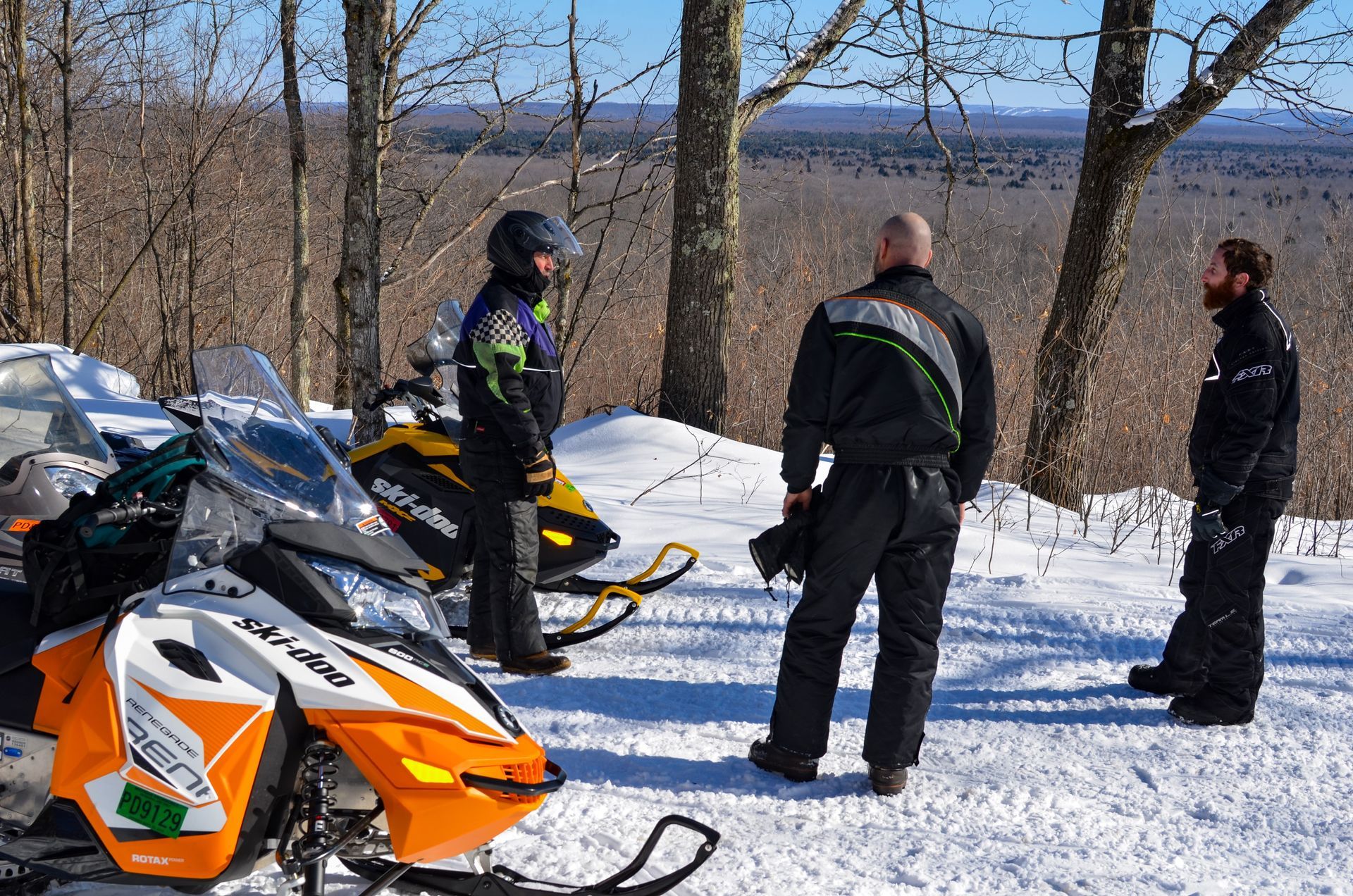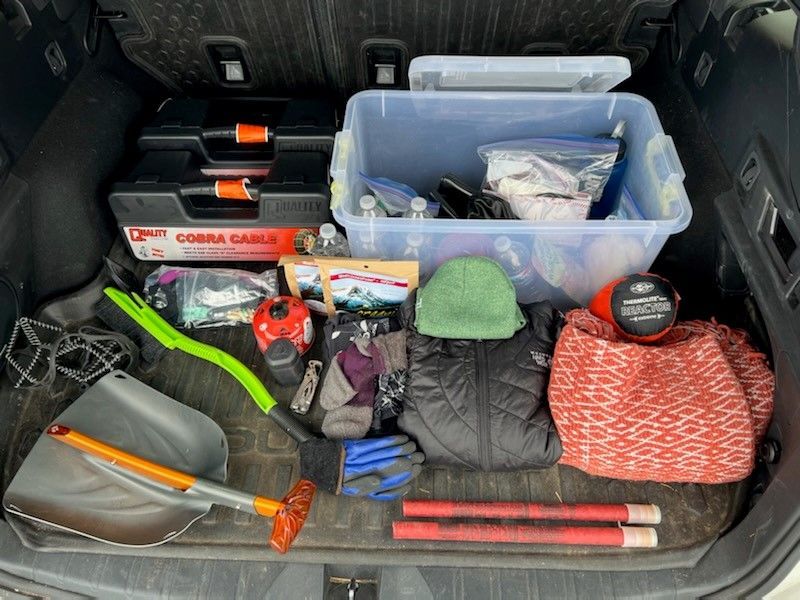Winter Safety in the Outdoors
With ice fishing and snowmobiling season in full swing here in Michigan, there are many ways to get involved in the outdoors even in the cold and snow. It’s important to keep in mind a few safety tips when spending time outside this time of year. One wrong move and you might be wishing you stayed home by the fire instead of enjoying one of the many recreation opportunities that Michigan has to offer.
Cold Weather
When spending time outdoors in any weather, safety is of utmost importance, especially in the cold. Preparing ahead to spend long periods in the cold allows for more time spent enjoying outdoor activities. The National Weather Service warns that when you are outside, frostbite and hypothermia are possible so it’s important to protect yourself with adequate clothing. They list a few key ways to do just that below:
- Wear layers of loose-fitting, lightweight, warm clothing
- Wear a hat and snug mittens, and try to stay dry & out of the wind
- Cover your mouth to protect your lungs from extreme cold
If you think you are experiencing frostbite or hypothermia, the American Red Cross supplies critical information on its Winter Storm Preparedness page for treating both conditions. For frostbite, they advise getting to a warm place and soaking the affected area in warm water until it appears red. For hypothermia, they emphasize calling 911 immediately and slowly warming up with blankets and dry clothing.

Outdoor Recreation
Many outdoorsmen and women participate in ice fishing, a long-standing sport in the Great Lakes region. According to the Mackinac State Historic Parks page, ice fishing was an important source of food for the Anishinaabek people for many generations during the winter months. Ice fishing at the Straits of Mackinac was a common practice and still is to this day. The sport is a great way to spend time with loved ones out on the ice and catch some tasty fish. The Michigan DNR offers a few important safety tips to keep in mind when venturing out on the ice:
- Your safety is your responsibility! There is no “inch-thickness” to determine if ice is safe
- A good way to test ice thickness is by using a spud, needle bar, or auger
- Stay off the ice if it has slush on top
- The stronger the current, the more likely ice will give way to open water
- Avoid areas of ice with protruding debris like logs
- Always check the ice and be aware of your surroundings!
If you happen to fall through the ice, the Michigan DNR lists several ways to help remedy the situation. The most important thing to keep in mind is to remain calm and call for help if you are able.
Snowmobiling is also a popular winter activity. Many small towns in Michigan’s Upper Peninsula see a spike in tourists during most winters with plenty of snowmobile activity. The Michigan DNR also has important safety tips for both snowmobile and ORV use to keep you and your family safe:
- Operate within the limits of your snowmobile/ORV and your own abilities
- Ride at a safe speed and always wear a helmet; and ride sober
- Ride on the right side of the trail; trails have two-way traffic
- Keep lights on while riding
- Use designated stop areas if needed. Never stop side-by-side in the middle of a hill, at the crest of a hill, on a corner or in an intersection
- Always yield to uphill motorized traffic, and non-motorized users have the right-of-way

Transportation
In general, the American Red Cross emphasizes that travel should be minimized, especially during severe winter weather. However, if you must drive in conditions like snow or freezing rain, they offer some helpful tips to help you stay safe on the roads:
- Fill up your gas tank and clean off lights and windows to help with visibility
- Share details of your route and departure/arrival time with someone
- Don’t use cruise control when driving in winter weather
- Know that ramps, bridges, and overpasses will freeze before roadways
It’s also important to have a winter emergency kit in your vehicle containing jumper cables, blankets, and extra food and water. Having snow tools in your vehicle like a small shovel and snow brush can also help you get rid of snow efficiently if needed. If you find yourself stuck in the snow, having something to provide tire traction such as kitty litter can make a big difference. Additionally, if you are driving in icy conditions, placing heavy items in the back of your vehicle like sandbags can provide adequate weight to help prevent you from sliding.

Learn More
For more information on staying safe in cold weather, there are plenty of resources available. The National Weather Service has a wind chill chart on their website that can be helpful for understanding wind chill and how it affects the feels-like temperature outside. The American Red Cross also has a Winter Storm page with important information on how to stay safe during a winter storm. To learn more about specific winter weather terms and for additional resources, visit the Ready.gov website. Ready is a national public service campaign focused on education and preparedness in emergencies and disasters.
For specific information on staying safe indoors this winter, visit the Centers for Disease Control’s page on Winter Weather. They outline important guidelines on safe heating sources, the use of generators, and how to prevent frozen pipes in your home.
Recent Posts



